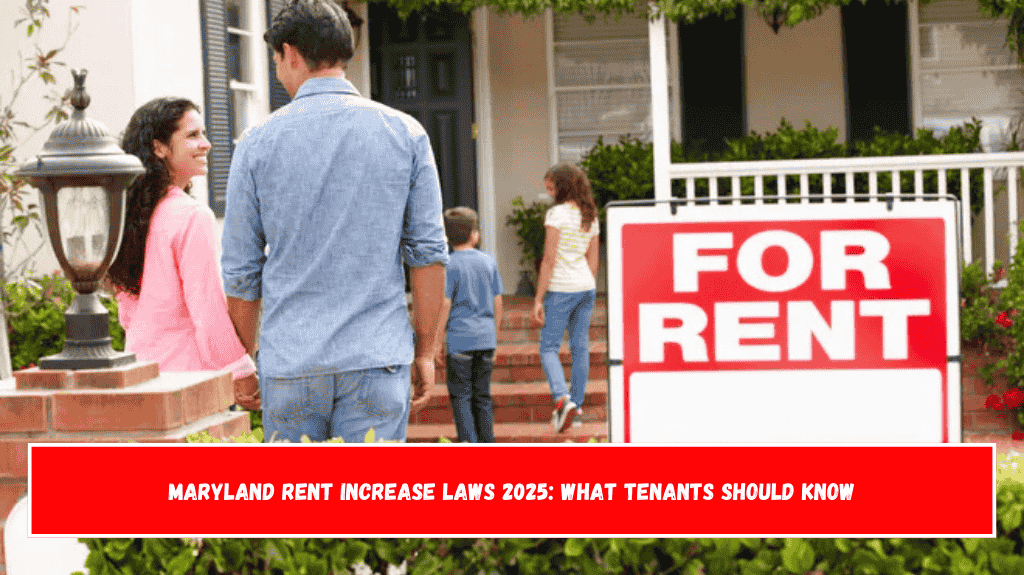Maryland’s rent increase laws in 2025 reflect a mix of state-level regulations and local ordinances designed to balance tenant protections with landlords’ rights. Here’s what tenants should know:
Statewide Regulations
- No Statewide Rent Cap: Maryland does not impose a statewide limit on how much landlords can increase rent. However, landlords must comply with lease agreements and provide proper notice before raising rent.
- Notice Requirements:
- For year-long leases, landlords must give at least 90 days’ written notice before the rent increase takes effect.
- Month-to-month leases require at least one month’s notice.
- Mid-lease increases are prohibited unless explicitly allowed in the lease agreement.
- Renters’ Rights and Stabilization Act (RRSA):
- Effective October 1, 2024, the RRSA introduced several tenant protections, including capping security deposits at one month’s rent and prohibiting landlords from passing eviction filing fees to tenants in most cases.
- The Act established the Office of Tenant and Landlord Affairs to publish an annual Maryland Tenants’ Bill of Rights, ensuring renters are informed of their legal protections.
Local Rent Control Ordinances
While Maryland lacks statewide rent control, certain counties have implemented local measures:
- Montgomery County:
- Rent increases are capped annually at the lower of the Consumer Price Index for All Urban Consumers (CPI-U) plus 3% or 6%. For 2025, the maximum allowable increase is 5.7% due to a CPI-U of 2.7%.
- Landlords may petition for higher increases to cover capital improvements or if they cannot achieve a fair return on their property.
- Baltimore City:
- Rent stabilization measures align with CPI-U adjustments to ensure affordability while protecting tenants from excessive increases.
Proposed Legislation in 2025
The Maryland General Assembly is considering additional laws that could impact renters:
- Good Cause Eviction Bill (SB0651): Would require landlords to show “good cause” for terminating leases or refusing renewals.
- Prohibition of Algorithmic Pricing (SB0609): Aims to prevent unfair rental pricing practices driven by algorithms.
Tenant Protections Against Illegal Increases
- Discrimination: Rent increases targeting specific groups based on race, religion, familial status, or other protected categories are illegal under the Fair Housing Act.
- Retaliation: Landlords cannot raise rent as retaliation for tenants exercising their legal rights, such as reporting unsafe conditions.
- Local Complaints: Tenants can file complaints with local housing authorities if they suspect unlawful rent hikes.
Key Takeaways for Tenants
- Understand your lease terms and ensure proper notice is given for any rent increase.
- Check local laws for specific rent control measures applicable in your area.
- Utilize resources like the Maryland Tenants’ Bill of Rights for guidance on disputes or concerns.
Maryland’s evolving laws aim to protect renters while maintaining fairness for property owners, making it essential for tenants to stay informed about their rights and responsibilities.
Sources
- https://www.steadily.com/blog/rent-increase-laws-regulations-maryland
- https://www.ballardspahr.com/insights/alerts-and-articles/2025/03/march-2025-multifamily-alert-including-important-legislative-and-administrative-developments
- https://www.steadily.com/blog/how-much-can-a-landlord-raise-rent-in-maryland
- https://baltimoretimes-online.com/news/business/2025/03/07/marylands-new-tenant-protection-laws-a-big-win-for-renters/
- https://www.montgomerycountymd.gov/DHCA/Tenants/RentStabilization.html

















Leave a Reply